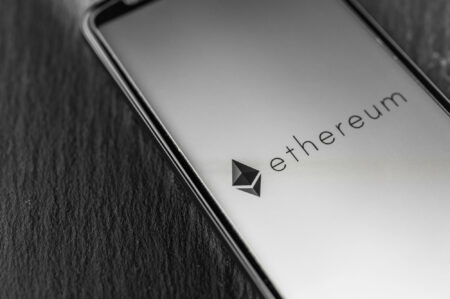What has been happening around Blockchain Technology and Cryptocurrencies this week? The most relevant local and international developments as well as appealing background reports in a pointed and compact way in retrospect in our weekly review.
China's attitude towards Bitcoin has always been rather reserved and unclear. Government reservations have primarily concerned services related to cryptocurrencies. Ultimately, Bitcoin's properties are not in line with the existing restrictions on capital transactions and the advanced introduction of the digital yuan is not supposed to be competed by digital alternatives. In the past, there have been quite a few announcements in the direction of a ban, but only a fraction of them have been implemented so far. . A direct crackdown is now visible in the bitcoin mining sector. Since May, the Chinese government has ordered various mining pools to close down - which meanwhile can also be seen in the network's hashrate. The Bitcoin blockchain is currently backed up with almost 50% less computation power than a few weeks ago. With the latest measures by the People's Republic, regions outside of China are becoming more attractive for miners. North America and some parts of Europe in particular seem to be attracting computing power as of now. While Beijing's decisions clearly created uncertainty in the markets, moving mining pools out of China should increase decentralization and thus the sustainability of the Bitcoin network in the long run.
In contrast to China, countries in the Western hemisphere are increasingly focusing on integrating the emerging digital asset class. Switzerland was able to become a crypto hotspot early on with clear regulation and supporting the industry. The home of "Crypto Valley" has numerous firms offering digital asset services, including prominent international corporations. Spanish banking giant BBVA is now taking advantage of this environment. The credit institution noted significant demand for digital assets since December. After extensive testing, BBVA announced this week that it will offer services for Bitcoin & Co. For now, the offer only applies to customers from Switzerland. An expansion to other countries depends on the regulatory framework, the bank added.
Only a few major banks have so far extended their services to digital assets. In contrast, a general interest in the underlying blockchain technology can be seen. "Tokenization" in particular is now an ongoing topic in the financial industry. The digital mapping of an asset on the blockchain promises several advantages over traditional securitization. In particular, cost savings, increased liquidity, stronger security, and programmability can benefit both banks and their customers. Finally, "non-bankable assets" such as art and real estate become accessible to a broader customer base through digital representation. The entry point to fragmented ownership no longer requires investment contributions in the millions. The result - according to the vision of the proponents - is an efficient and liquid market for all assets.
In the first half of this year, the field of non-fungible tokens (NFTs) managed to surface. These are understood to be unique blockchain tokens. The Austrian National Postal Service is using this technology for its limited-edition stamp collection. The "Crypto Stamps 3.0" come in the form of an NFT in addition to the physical stamp for postage. The project proved to be a great success - within one day the stamps were sold out.
In addition: A common industry scam came to light again this week. South African crypto investment platform "Africrypt" turned out to be a fraud after its founders disappeared along with around $3.6 billion in investor funds. The stolen bitcoins were sent through different "mixers" and bitcoin pools to make it difficult to trace them. Local authorities are aware of the events, but are struggling to handle the case. This is partly due to the unclear regulation of cryptocurrencies, which are not considered financial products under South African law.
Selected articles in the weekly review:
China continues its tough stance on cryptocurrencies.
https://cryptovalleyjournal.com/focus/background/china-continues-crackdown-on-bitcoin-mining/
Spanish banking giant launches first crypto services from Switzerland.
An overview of the benefits of blockchain technology in the field of tokenization.
The new stamp collection of the Austrian Postal Service appears physically and as a NFT.
The founders of a crypto investment platform have disappeared with several billion dollars in bitcoin.
South African crypto platform “Africrypt” steals 3.6 billion USD
Would you like to receive the Weekly review and other interesting formats via push message?




